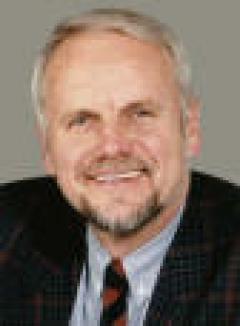
by Brigitte Alfter
An alliance for minority languages has been formed by members from all the political parties in the German parliament, the Bundestag. 44 of 603 members of parliament participated in the first meeting, according to Wolfgang Börnsen, spokesperson of the informal alliance.
The alliance intends to keep an eye on how international agreements on the protection of regional and minority languages are implemented in Germany. There certainly is enough to be done, especially in the fields of education, public administration and the media, according to Börnsen. Also the EU-enlargement will bring new tasks regarding minority languages, he states.
Börnsen, a member of the conservative Christian Democrats CDU, was himself elected in the northernmost part of Germany, the Danish-German border region, a region rich with languages. Danish, German, Frisian, Romani and Lower German are to be found in the region. North of the border there is also the special Danish dialect of Southern Jutland, Synnejysk.
Another member of the alliance, Maria Michalk, also CDU and a Sorbian, has an insider knowledge of the minority organisations. She considers the alliance a political lobby group to promote minority languages and to heighten their status, ‘so minority languages can gain more space in society,’ she says to Eurolang.
She also considers the EU-enlargement as important in the context of languages. As an example she mentions her own language, Sorbian, which is a Slavonic language and can thus become a bridge into the new EU-countries along Germany’s eastern border.
The four recognised minorities, Danes, Frisians, Sinti, Roma and Sorbs, have been requesting a standing contact committee at the German parliament for a long time. Currently they have a regular contact with the government but nothing inside the parliament itself. Such a committee is planned for but still does not yet exist. Last September proposals for such a committee was debated between the language minorities and the president of the Bundestag, Wolfgang Thierse.
However, this voluntary parliamentary alliance may not necessarily fulfil the needs of language minorities, according to Maria Michalk. ‘A contact committee would have many other tasks than just the protection of languages, it would deal with the economy, politics and all sorts of questions affecting national minorities. Also such a committee would be permanent,’ says Ms Michalk, ‘the alliance depends on the commitment of the current members of parliament,’ she says.
One of the first activities of the alliance will be a parliamentary debate in Lower German about the expected report of the federal government on the status of regional and minority languages this spring.
The German initiative is of particular interest in that it may set a precedent for the establishment of minoritised language intergroups in other European member-state parliaments.
 Eurolang? is a specialist niche news agency covering topics related to lesser-used languages, linguistic diversity, stateless nations and national minorities within the European Union.
It provides an expanding on-line daily service across Europe, to NGOs, the media, European, State and local government, academia, researchers and the general public.
The purpose of Eurolang is to provide, on a daily basis, relevant and current news about Europe's regional, stateless and minority language communities, numbering some 46 million speakers, to the general public and to national and regional media (newspapers, magazines, TV, radio, internet media) in Europe and worldwide.
Eurolang? is a specialist niche news agency covering topics related to lesser-used languages, linguistic diversity, stateless nations and national minorities within the European Union.
It provides an expanding on-line daily service across Europe, to NGOs, the media, European, State and local government, academia, researchers and the general public.
The purpose of Eurolang is to provide, on a daily basis, relevant and current news about Europe's regional, stateless and minority language communities, numbering some 46 million speakers, to the general public and to national and regional media (newspapers, magazines, TV, radio, internet media) in Europe and worldwide.